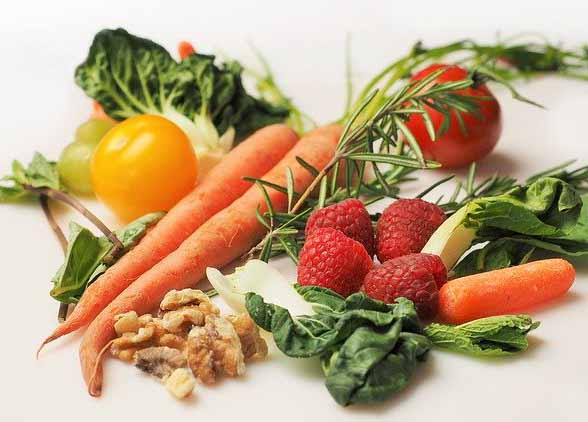Why is spring the wrong time for diets? Explains Pharmacist
As summer approaches, when the weather begins to get warmer
and brighter, more and more people are interested in different diets for weight
loss. It is important to remember that drastic diets based on fasting, a very
high calorie reduction, the exclusion of certain nutrients from the diet or the
consumption of uniform products are not only undesirable but also dangerous to
health. Līga Cīrule, a pharmacist of the pharmacy, tells more about why spring
is not a suitable time for diets and the conditions that must be observed
before starting a diet.
Majority of the peoples are obese, due to the out exclusive
diets, but it is important to remember that not only diet, but also physical
activity is important to keep fit. diet, make sure that the body will receive
all the necessary nutrients (fats, carbohydrates, proteins and fiber), as well
as vitamins, minerals and energy (kilocalories), because only this body will be
able to function, "says the pharmacist.
After the winter the body is weakened
Autumn and winter are a stressful time for our body, because
much less sunlight is absorbed, which helps to synthesize vitamin D. Vitamin D,
in turn, is responsible for many important body functions, such as providing
immunity and building the happiness hormone serotonin. Also, in autumn and
winter, people suffer more from respiratory viruses that weaken the body, as
well as during this period, vegetables, fruits and berries grown in our
latitudes, rich in various vitamins and minerals, are less available. That is
why spring is a time to think about a complete and varied diet to help the body
regain strength. In spring, it is desirable to include sprouts (radishes,
sunflowers, cress, cabbage, etc.), new greens (dill, onions, parsley), spinach,
sorrel, lettuce, dandelion leaves, first radishes and carrots. It is also the
right time to free the freezer from the previous year's stocks, such as frozen
berries.
Proper meal planning
The first of the diet rules is proper meal planning -
breakfast, lunch, dinner, as well as healthy snacks between meals, such as a
fruit, vegetable, nuts or berries. Main meals should include carbohydrate
products such as oatmeal, buckwheat, rye bread, vegetables, pasta (preferably
whole grains), protein products - eggs, kefir, cottage cheese, milk, fish -,
fish products, lean meat, quinoa, soybeans such as spinach, tomatoes,
cucumbers, carrots, beets, greens, arugula, lettuce, cabbage and courgettes.
Sufficient fat will be ingested already with these products and during the
preparation process, so it is important not to overdo it and, for example, do
not use fat when reheating food. It is important to diversify meals and keep
the portion size that does not cause overeating.
Sufficient fluid intake
The second basic rule is to absorb a sufficient amount of
unsweetened liquid, such as water. Depending on lifestyle, diet and other
factors, you should take one and a half to three liters a day. One of the
indicators that helps to keep track of whether the fluid is absorbed enough is
the color and smell of the urine - if the urine is dark and has an unpleasant
odor, the water intake is too little on a daily basis. Dry lips and skin can
also indicate insufficient fluid intake. It is important for people with
chronic kidney disease to consult a doctor about the amount of fluid they need.
Individual diet plan and physical activities
For people who want to lose weight, it is definitely
advisable to consult certified professionals before for an individually
tailored diet plan. Specialists will also be able to advise on which physical
activities should be chosen, or will recommend a specialist who will draw up a
plan for physical activities. One of the easiest physical activities that most
people can choose from is walking - 10,000 steps every day, which equates to
about six to seven kilometers. People who do not travel this distance on a
daily basis have to conclude that their lifestyle is sedentary.
"Diets should be treated very sensibly, as poor nutrition can negatively affect bowel movements, immunity, well-being and joy of life. Prolonged malnutrition can even be linked to serious illnesses such as malignancies, cardiovascular disease, type 2 diabetes and osteoporosis," warns.







No comments:
Post a Comment